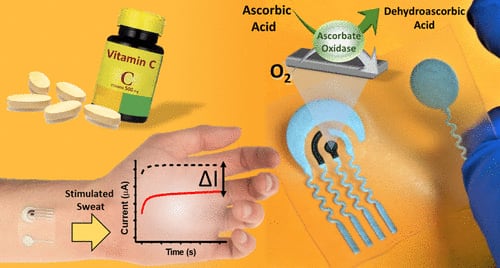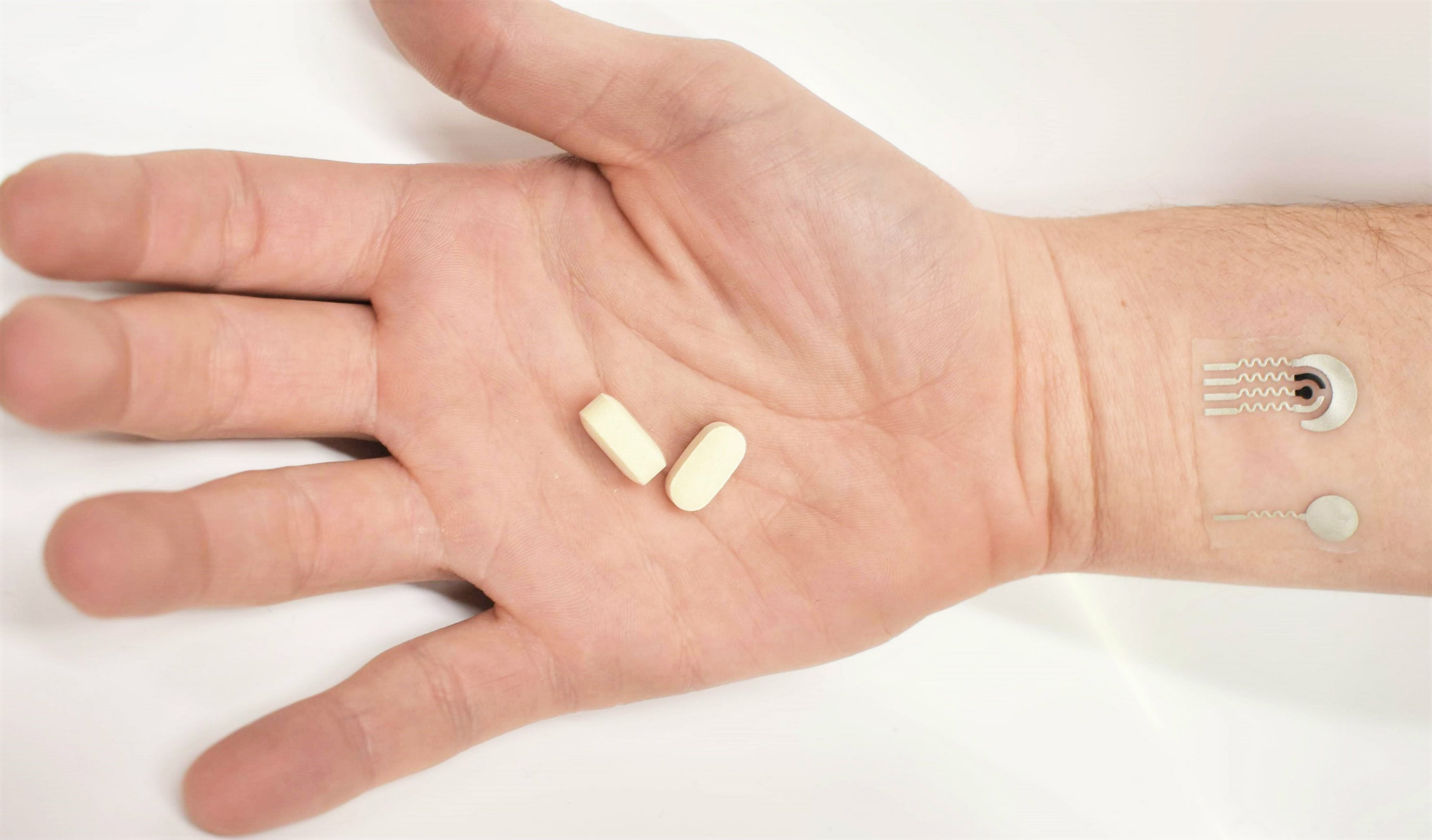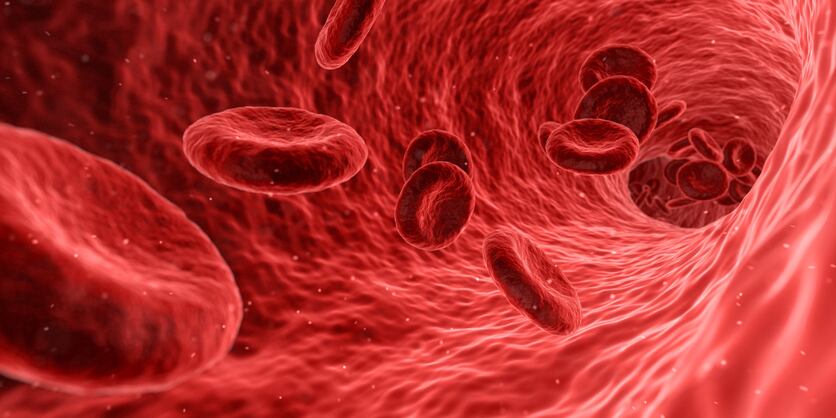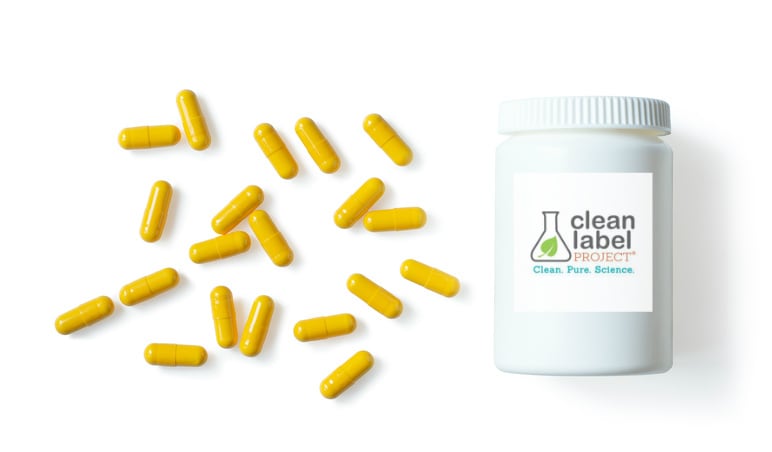The vitamin C sensor was developed by a team at the University of California San Diego. While wearable tech is nothing new, this device stands out because it monitors nutrient levels rather than physical activity, vital signs, or symptoms.
The device is another example of how the nutrition market is continuously trending toward more personalized options.
Study author Joseph Wang, a professor of nanoengineering and director of the Center of Wearable Sensors at UC San Diego, said rarely are wearable sensors considered for precision nutrition.
“Wearable sensors have traditionally been focused on their use in tracking physical activity, or for monitoring disease pathologies, like in diabetes,” added first-author Juliane Sempionatto, a PhD Candidate in nanoengineering in Wang’s lab at the UC San Diego Jacobs School of Engineering. “This is the first demonstration of using an enzyme-based approach to track changes in the level of a necessary vitamin, and opens a new frontier in the wearable device arena.”
How it works

The device is a flexible vitamin C tattoo patch which was fabricated on a polyurethane substrate that can be applied to the user’s skin. It contains a system that stimulates sweating and an electrode sensor designed to detect vitamin C levels in the perspiration. When sweat contains vitamin C, the enzyme converts it to dehydroascorbic acid. The conversion process generates an electric current which the sensor detects and measures to analyze vitamin C levels.
Promising personal nutrition applications
In vitro testing as well as testing in four human subjects who consumed vitamin C supplements and vitamin C-containing fruit juices showed that the device was highly sensitive to detecting changes in the levels and dynamics of the vitamin when tracked over two hours.
“Temporal vitamin C profiles in sweat are demonstrated using different subjects taking varying amounts of commercial vitamin C pills or vitamin C-rich beverages. The dynamic rise and fall of such vitamin C sweat levels is thus demonstrated with no interference from other sweat constituents. Differences in such dynamics among the individual subjects indicate the potential of the epidermal biosensor for personalized nutrition solutions. The flexible tattoo patch displayed mechanical resiliency to multiple stretching and bending deformations,” the authors said.
The researchers also tested the electrode detector’s ability to detect temporal vitamin C changes in tears and saliva, demonstrating its cross-functionality.
“The enzyme ascorbate oxidase (AAOx) biosensor is shown to be useful as a disposable strip for the rapid in vitro detection of vitamin C in untreated raw saliva and tears following pill or juice intake,” the report noted.
The authors also suggested the sensors offer potential for guiding personalized nutrition solutions.
“Despite the rapid development of wearable biosensors, the potential of these devices to guide personalized nutrition has not yet been reported,” said Wang. “I hope that the new epidermal patch will facilitate the use of wearable sensors for non-invasive nutrition status assessments and tracking of nutrient uptake toward detecting and correcting nutritional deficiencies, assessing adherence to vitamin intake, and supporting dietary behavior change.”
Sempionatto added that this type of device would be valuable for supporting behavioral changes around diet and nutrition: “A user could track not just vitamin C, but other nutrients - a multivitamin patch, if you will. This is a field that will keep growing fast.”
Source: ASC Publications
2020, 5, 6, 1804–1813 doi.org/10.1021/acssensors.0c00604
“Epidermal Enzymatic Biosensors for Sweat Vitamin C: Toward Personalized Nutrition”
Authors: J. Sempionatto et al.




